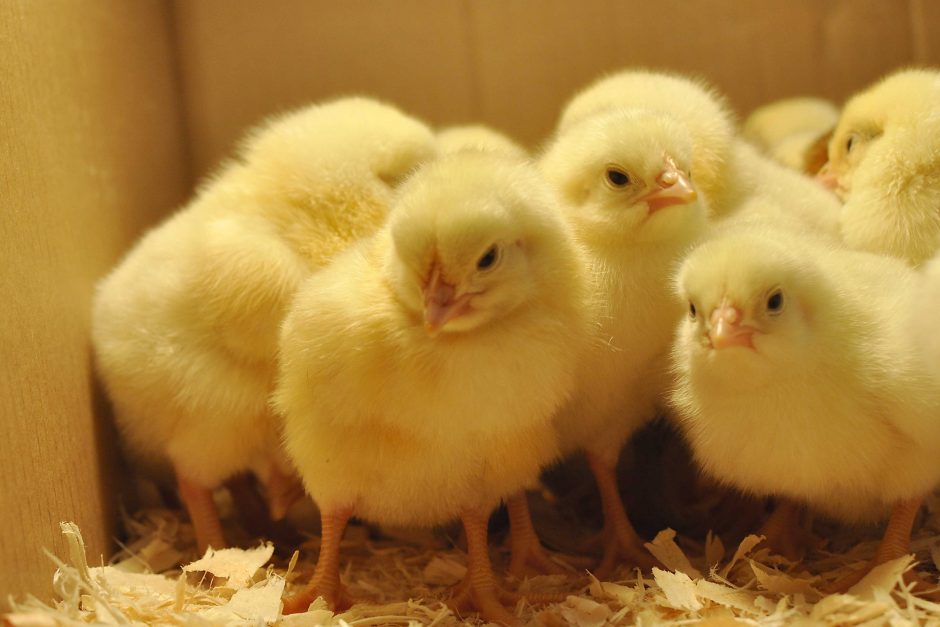Price of day-old chicks in Ghana

When it comes to poultry farming, day-old chicks are an important part of the poultry industry in Ghana. They are the starting point for the production of poultry meat and eggs, which plays a crucial role in the livelihoods of many Ghanaian poultry farmers.
The importance of day-old chicks in Ghana cannot be overlooked. They are the foundation for the growth of the poultry industry, which has become a significant contributor to the country’s economy. The poultry industry generates over $500 million annually and employs more than 60,000 people, making it one of the most important agricultural sectors in the country.
In this article, we will talk about the prices of day-old chicks in Ghana, the factors that affect the prices, and the challenges faced by the poultry farm industry.
Price of Day-Old Chicks in Ghana
Every Ghanaian need meat in their meal and that shows how important poultry farming is. This has made the demand for chicks high and with day-old chicks being the beginning of poultry, they become an important part of them all. Currently, the average price of a day-old chick in Ghana is between GHS 5 to GHS 8, depending on the breed and the location. Prices can be as high as GHS 20 for some exotic breeds. The price of day-old chicks varies across regions in Ghana, with the highest prices being in the urban areas, and the lowest prices being in the rural areas.
Factors Affecting the Price of Day-Old Chicks in Ghana
1. Supply and demand
If there are more farmers looking for chicks than there are chicks available, the price will go up. If there are more chicks available than there are buyers, the price will go down. This is why it IS important for farmers to plan ahead and order their chicks in advance to ensure they have access to the quantity they need.
2. Breed
Different breeds of chickens have different characteristics, and this can affect their price. Some breeds may be more resistant to disease or produce more eggs than others, and these characteristics can make them more expensive. Some breeds may be more popular than others, which can also impact their price.
3. Delivery costs
The cost of delivering day-old chicks to farmers in Ghana can also impact the price. If the farm is located in a more remote area, the delivery costs may be higher. If the farm is only ordering a small number of chicks, they may need to pay a higher delivery fee per chick.
4. Feed costs
The cost of feed is a major expense for poultry farmers in Ghana, and this can also impact the price of day-old chicks. If feed prices are high, farmers may be more hesitant to purchase chicks, as they will need to spend more money on feed to raise them. This can lead to a decrease in demand, which can drive down the price of chicks.
5. Government policies
Government policies and regulations can also impact the price of day-old chicks in Ghana. If the government imposes import restrictions on chicks, this can limit the supply and drive up the price. if the government provides subsidies for poultry farmers, this can help to lower the cost of raising chickens and make day-old chicks more affordable.
- Advertisement -
Challenges Faced by Poultry Farmers in Ghana
Disease Outbreaks
One of the biggest challenges faced by poultry farmers in Ghana is disease outbreaks. Poultry diseases can spread quickly and cause significant losses to farmers. These diseases can be prevented through vaccination and proper biosecurity measures, but farmers must remain vigilant and quick to respond to any signs of illness in their flocks.
High feed costs
Feed is a significant expense for poultry farmers, with the cost of feed accounts for up to 70% of total production costs. Unfortunately, the cost of feed in Ghana is high due to a combination of factors, including the high cost of imported ingredients and the lack of local feed manufacturing capacity. As a result, many farmers struggle to make a profit or break even.
Lack of access to finance
Banks and other financial institutions are often reluctant to lend to farmers due to the perceived risk associated with the sector. Without access to finance, farmers may struggle to purchase inputs such as feed, vaccines, and equipment, which can lead to reduced productivity and profitability.
Poor market access
Many farmers struggle to find buyers for their products, which can lead to a surplus of birds and reduced prices. The lack of market access is limited by the fact that there is no specific market for poultry products in Ghana. Because of that, farmers often rely on middlemen for sales, who may offer low prices.
Lack of technical knowledge
Many poultry farmers in Ghana lack the technical knowledge and skills required to run a successful poultry farm. This includes knowledge of best practices for disease prevention and management, and feed management. Without this knowledge, farmers may struggle to maintain healthy flocks and achieve optimal productivity.
Final words
Poultry farmers should adopt best practices in production and marketing to improve the quality of their products and reduce production costs. The government should provide incentives to encourage investment in the industry, such as tax breaks and subsidies. Policymakers should establish effective regulatory frameworks to ensure consumer protection and fair competition. Other stakeholders such as financial institutions and academic institutions should play their part in supporting the industry through funding and research. By working together, there will be a sustainable and profitable poultry industry in Ghana.


